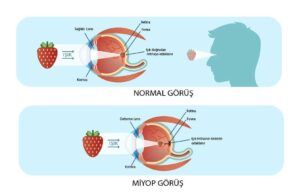
Secrets of Healthy Weight Loss?
The Power of Mindfulness in Achieving Healthy Weight Loss, Losing weight is a common goal for many people. However, it can be challenging to achieve and maintain. Sustainable and healthy weight loss requires a multifaceted approach that includes both diet and exercise. In this article, we will explore the secrets to sustainable and healthy weight loss.
Set Realistic Goals The first step towards sustainable and healthy weight loss is to set realistic goals. It is essential to understand that losing weight takes time and effort. You cannot expect to lose a significant amount of weight overnight. Setting small, achievable goals will help you stay motivated and make progress towards your overall weight loss goal.
Focus on Nutrition Nutrition plays a critical role in sustainable and healthy weight loss. A balanced diet that includes a variety of fruits, vegetables, whole grains, lean protein, and healthy fats can help you lose weight and maintain a healthy weight. Focus on reducing your intake of processed foods, sugary drinks, and high-fat foods. These types of foods can lead to weight gain and other health problems.
Exercise Regularly Exercise is an essential component of sustainable and healthy weight loss. It helps to burn calories, build muscle, and boost your metabolism. Aim for at least 30 minutes of moderate-intensity exercise, such as brisk walking, every day. You can also incorporate strength training exercises, such as weightlifting or resistance bands, to build muscle and increase your metabolism.
Get Enough Sleep Sleep is crucial for sustainable and healthy weight loss. Lack of sleep can lead to an increase in appetite, decreased energy levels, and a decrease in metabolism. Aim for at least 7-8 hours of sleep every night to ensure your body is adequately rested and ready for the day ahead.
Stay Hydrated Staying hydrated is essential for sustainable and healthy weight loss. Drinking plenty of water can help to flush out toxins, reduce bloating, and keep you feeling full. Aim for at least eight glasses of water per day, and avoid sugary drinks and excessive amounts of caffeine.
Manage Stress Stress can be a significant contributor to weight gain and difficulty losing weight. When you are stressed, your body produces the hormone cortisol, which can increase appetite and lead to weight gain. Incorporate stress-reducing activities into your daily routine, such as meditation, yoga, or deep breathing exercises.
Track Your Progress Tracking your progress is essential for sustainable and healthy weight loss. Keep a food journal to monitor your eating habits, and use a fitness tracker to monitor your exercise routine. Regularly measuring your progress will help you stay motivated and make adjustments to your plan as needed.
Maintaining a healthy weight is essential for overall wellbeing and reducing the risk of chronic diseases. However, losing weight can be challenging, and many people struggle to achieve their weight loss goals. One approach that has gained popularity in recent years is mindfulness, which can help individuals develop a more positive relationship with food and their bodies, leading to sustainable weight loss.
What is Mindfulness? Mindfulness is the practice of being fully present and engaged in the moment without judgment. It involves paying attention to one’s thoughts, emotions, and physical sensations with curiosity and openness. This practice has been shown to reduce stress, improve mental health, and increase overall wellbeing.
How Mindfulness Can Help with Weight Loss?
Mindfulness can help individuals develop a healthier relationship with food and their bodies, leading to sustainable weight loss. Here are some ways mindfulness can help:
Awareness of Hunger and Fullness Signals: Mindfulness can help individuals become more attuned to their body’s hunger and fullness signals, allowing them to eat when hungry and stop when full. Often, people eat out of habit, boredom, or emotional reasons rather than actual hunger. Mindfulness can help individuals differentiate between emotional and physical hunger and eat mindfully.
Reduce Emotional Eating: Mindfulness can help individuals become aware of their emotional triggers for overeating and develop healthier coping mechanisms. Many people use food as a way to cope with stress, anxiety, or boredom. Mindfulness can help individuals identify their emotional triggers and develop more effective ways to manage their emotions.
Positive Self-Image: Mindfulness can help individuals develop a more positive relationship with their bodies and reduce negative self-talk. Many people have a negative body image, leading to shame, guilt, and low self-esteem. Mindfulness can help individuals accept their bodies and treat them with compassion, leading to a more positive self-image.
Enjoyment of Food: Mindfulness can help individuals enjoy their food more fully by paying attention to its taste, texture, and aroma. Often, people eat quickly and mindlessly, not fully experiencing their food. Mindfulness can help individuals savor their food and appreciate it more fully.
How to Practice Mindfulness for Weight Loss?
Here are some tips for practicing mindfulness for weight loss; Eat Mindfully: When eating, focus on the taste, texture, and smell of the food. Chew slowly and savor each bite. Put down your fork between bites and take breaks to check in with your hunger and fullness signals.
Practice Self-Compassion: Be kind and compassionate with yourself. Recognize that weight loss is a journey and be patient with yourself. Avoid negative self-talk and practice positive affirmations.
Stay Present: Practice staying present in the moment without judgment. Focus on the present rather than the past or future. When negative thoughts arise, acknowledge them, and let them pass without judgment.
Mindful Movement: Engage in mindful movement such as yoga or meditation. These practices can help reduce stress, improve mental health, and increase overall wellbeing.
Mindful Movement Mindfulness can be a powerful tool for achieving healthy weight loss. By developing a more positive relationship with food and your body, you can make sustainable lifestyle changes that support your overall health and wellbeing. Practice mindfulness regularly, be patient with yourself, and enjoy the journey towards a healthier, happier you.
In conclusion, sustainable and healthy weight loss requires a multifaceted approach that includes both diet and exercise. Setting realistic goals, focusing on nutrition, exercising regularly, getting enough sleep, staying hydrated, managing stress, and tracking your progress are all essential components of a successful weight loss plan. By incorporating these secrets into your daily routine, you can achieve and maintain a healthy weight for life.








